South African Wildlife & Weather: Know Before You Go
Travelers flock to South Africa is to experience the great outdoors and witness wildlife like never before.
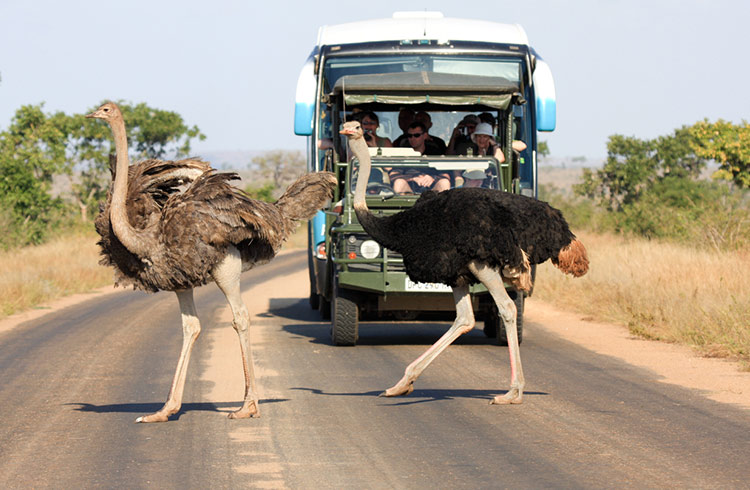 Photo © Getty Images/DavidCallan
Photo © Getty Images/DavidCallan
There are certain things you can prepare for, like getting your vaccinations sorted and organizing transport from the airport. But the real threat to travelers is when weather turns nasty unexpectedly, and the local wildlife creeps up on you without warning.
- South Africa's weather and natural hazards
- A guide to wildlife in South Africa
- Road hazards
- Water dangers
South Africa's weather and natural hazards
The climate in South Africa is generally dry, warm, and sometimes humid. It can also be unpredictable. The biggest weather-related threat typically involves rain, and all of the effects it can have.
The rainy season for the majority of the country occurs during the summer months (November-March) and can bring extremely heavy rain. The heavier the rain, the greater the likelihood of flash flooding.
Flooding
Flooding has been a serious issue in recent years, with the government declaring of state of disaster in several provinces. Floods are nothing to take lightly – they can cause significant damage to property and even loss of life. In April, 2019, floods and mudslides killed at least 60 people in Durban and the wider KwaZulu-Natal province.
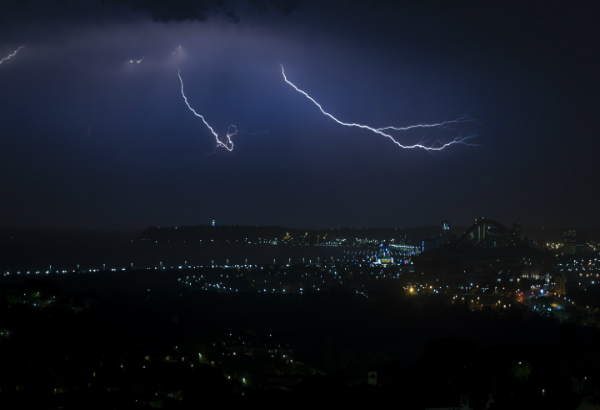
South Africa is home to many rivers, lakes and winding creeks. During periods of heavy rainfall, these smaller creeks may overflow and flood nearby roads. This can make driving extremely treacherous.
Pay attention to the weather if you are out on an excursion. You don't want to end up stranded somewhere in your vehicle. If possible, consult with a local before you leave for a road trip for advice on what areas might be more risky and should be avoided.
Surrounding coastal waters can also be affected by heavy rainfall, causing unpredictable waves, and tide patterns which can be extremely dangerous for anyone swimming or surfing. Even beaches and areas near the coast can be hazardous. If you're visiting during the rainy season, take heed.
Lightning
Another danger that often accompanies rainstorms is lightning. Dozens of people have lost their lives in lightning-related incidents in recent years. In fact, South Africa happens to have one of the highest lightning ground strike densities in the world. To avoid danger during an electrical storm:
- Seek shelter immediately (preferably in a large building or a fully enclosed vehicle).
- Unplug electrical equipment.
- Stay away from windows.
Listen to The World Nomads Podcast: South Africa
A guide to wildlife in South Africa
South Africa is home to some of the most incredible species of wild animals on earth. Moreover, it offers a unique opportunity for visitors to actually observe and experience these fascinating creatures in their natural environment. It's the very reason many people choose to go here.
One of the most important things to consider before setting out to see the animals is that while they're beautiful and may seem peaceful and harmless, they are most certainly wild animals and can pose a serious threat to anyone who comes near them.
Here are a few animals you may encounter, and tips to keep your interactions with them safe.
Monkeys and baboons
These guys are just about everywhere and have become somewhat of a nuisance. They're limber and sneaky and can climb over gates and fences with ease, so even areas that are 'protected' from the wildlife may still have some uninvited guests popping in.
Whatever you do, don't feed them. They can become extremely aggressive and they're quite strong. Take a few pictures and then avoid them as much as possible.
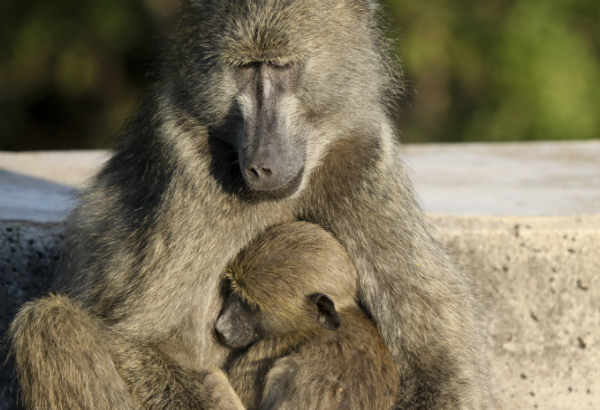
Lions and leopards
You'll likely see these magnificent creatures lounging around the bush while you're out on safari. While they generally pay no mind to passing sightseers, they're still dangerous. As peaceful as they may appear, they can be aggressive and unpredictable. Never get out of your vehicle near these big cats.
Elephants
Seeing elephants close is an unreal experience, and they typically aren't bothered by tourists snapping pictures. However, they are huge and fast and can be aggressive.
Females are fiercely protective of their young and will attack if they feel their safety is being threatened, so don't get too close.
Likewise, lone bull elephants can be territorial and hostile. Be watchful of warning signs, such as waving or flapping of the ears, which can mean an elephant is preparing to charge.
Keep your distance, and keep your vehicle running (some suggest keeping it in reverse), so you can make a hasty retreat if needed.
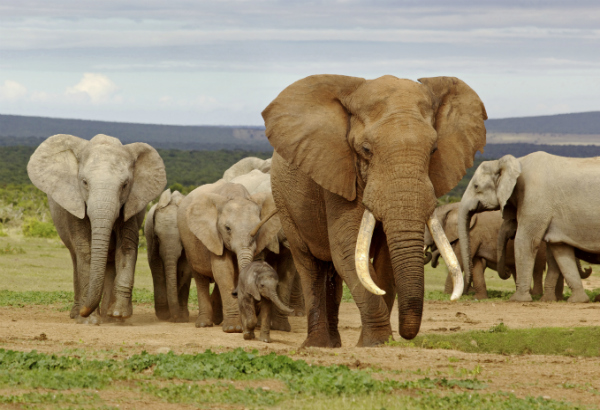
Rhinos
Rhinos are particularly territorial animals, with strong senses of smell and hearing, but poor eyesight. The rule of thumb is to give them space and stay far enough away that they can't smell you, and you'll be safe.
Hippos
While they appear to be gentle and harmless, hippos are extremely aggressive animals. In fact, hippos are responsible for more deaths each year in Africa than any other animal.
Steer clear of them, and never get between them and the water. Keep a close eye out when near rivers or lakes, as hippos blend in well and are hard to spot.

Road hazards
While driving in areas where wildlife is prevalent, be extremely vigilant of anything that might dart across the road in front of your vehicle. Deer, impala, and even water buffalo may cross without warning, and a collision with one of these could cause you and your passengers serious harm or even death.
Water dangers
Crocodiles are known to inhabit some bodies of water in South Africa, so never go swimming without consulting with the locals first.
Shark attacks have been reported in Western Cape Province in the False Bay area, and off KwaZulu-Natal in the southeast, but they remain rare events.
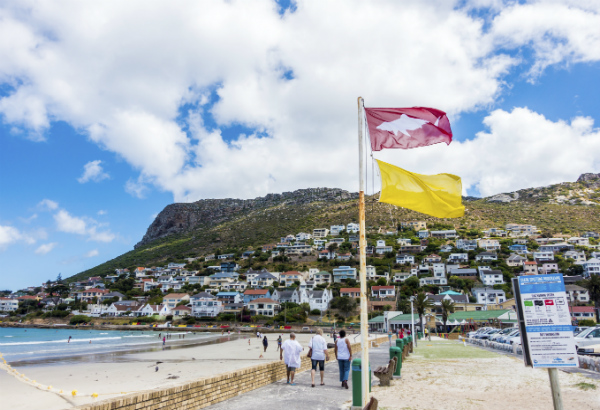
It's pretty safe to swim at most major beaches in Cape Town, because they have implemented an effective Shark Spotters program. Shark Spotters operate on four local beaches year-round. Four others have spotters during the spring and summer months only. Pay close attention to the flags and signage posted on the beaches, just to be safe.
Shark Spotters have also put up a non-lethal exclusion net barrier at Fish Hoek to keep sharks out of the swimming area. Some beach locations in KwaZulu Natal also use a barrier-style net or drumlines, though these are controversial as they can pose a danger to the sharks and other marine animals.
It's important to note that the Fish Hoek net is only deployed during the spring and summer months (weekends in October and April, daily November-March). In KwaZulu-Natal, the nets are removed during the months of May–July to make way for migrating sardines.
A journey to South Africa almost certainly means that you will experience adventure and excitement. But when visiting a country as vast and untamed as this, it's important that you take into consideration nature's risks along with its beauty. If you plan accordingly and respect the land, weather, and wildlife around you, the memories you leave with will be good ones.
Related articles
Simple and flexible travel insurance
You can buy at home or while traveling, and claim online from anywhere in the world. With 150+ adventure activities covered and 24/7 emergency assistance.
Get a quote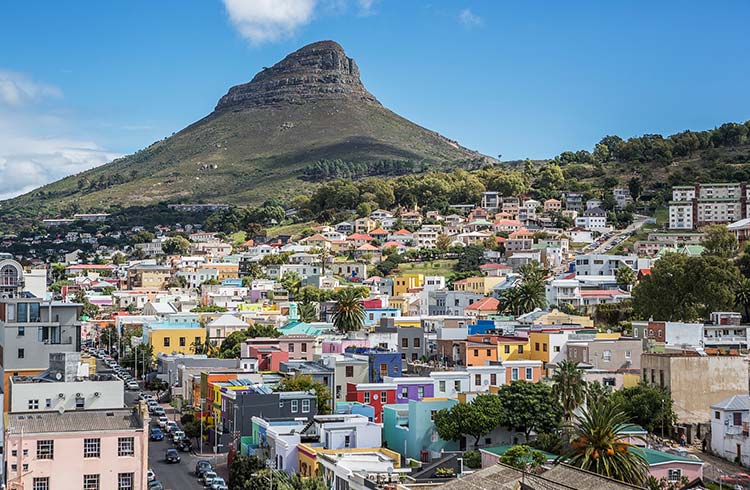
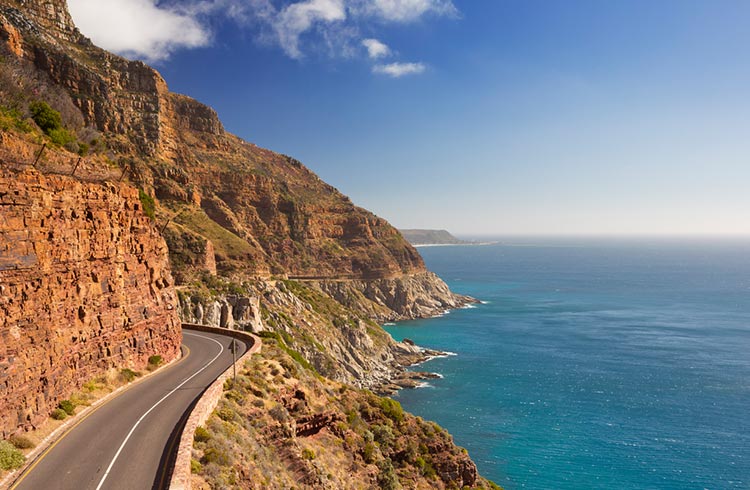
1 Comment
Could you add some other weather related dangers?